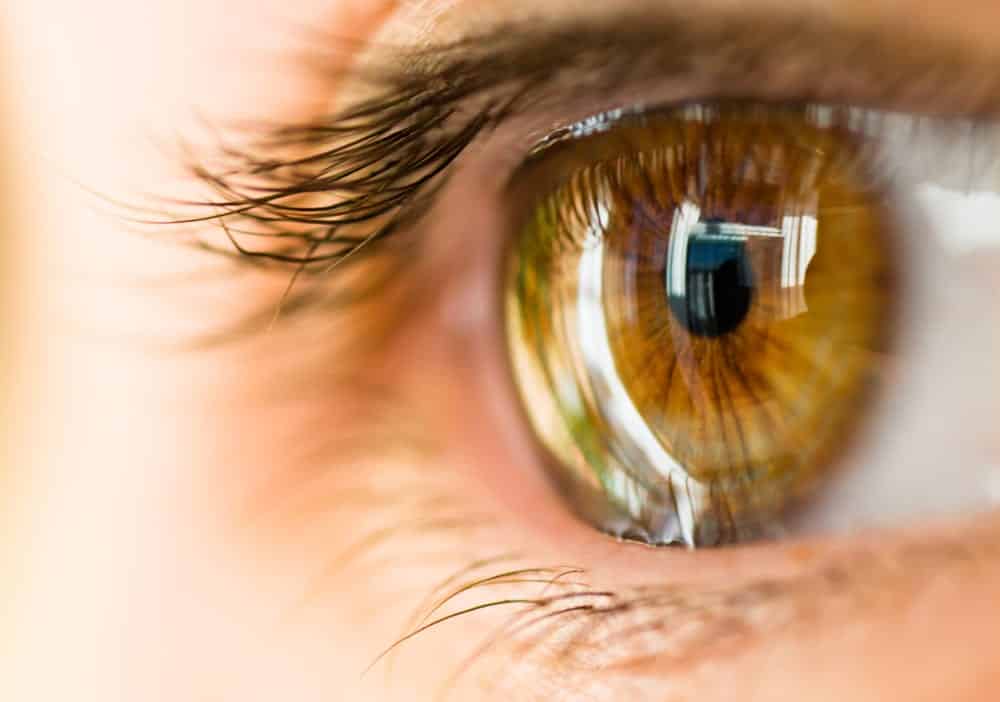Like your skin, your eye is composed of several layers. Located at the front of the eye, the cornea is the clear outer layer that helps your eye focus light – and just like your skin, your cornea is susceptible to scratches and scrapes. A scratched cornea, or corneal abrasion, occurs after a foreign body like a makeup brush, a piece of dust, or a fingernail makes contact with the surface of your eye. Scroll down to find out what to do if you scratch your cornea.
What to Do If You Scratch Your Cornea
Scratched Cornea Symptoms
While our eyes are exposed to all kinds of stressors, scratched cornea symptoms go beyond everyday eye discomfort. If you’ve recently experienced serious eye trauma – a scratch from a tree branch, for example – you may have a scratched cornea. However, scratched corneas can result from even mild eye trauma. If you suspect you might have a scratched cornea, there are several symptoms to watch out for – whether or not you can recall recent severe eye trauma:
- General discomfort and eye pain
- Sensitivity to light
- Excessive tearing
- The sensation of a foreign body in your eye (like an eyelash)
- Redness
- Blurry vision
- Decreased peripheral vision
- Headache and nausea
Treating a Scratched Cornea
The symptoms listed above can all point to a scratched cornea. Remember, you may have a corneal abrasion even if you’re not aware of any recent eye trauma. If symptoms persist, you should schedule an appointment with an eye doctor right away. Doctors typically treat corneal abrasions with lubricating eye drops, but another treatment may be prescribed as well. In any case, you shouldn’t plan to treat a scratched cornea on your own, as this can lead to permanent damage.
Protecting Your Eyes
Now you know what to do if you scratch your cornea – but how can you protect your eyes and prevent a scratched cornea altogether? If you know you’ll be in a scenario with eye hazards – maybe you’re mowing your lawn, playing sports, or cleaning with harsh chemicals like bleach – you should strongly consider wearing protective eye gear. While protective eyewear may seem like overkill in some situations, remember that it only takes a drop of bleach or a particularly sharp grain of dust to permanent damage your eyesight. Additionally, if you want to learn more about protecting your eyes, remember to visit your eye doctor at least once a year. Your eye doctor is your best resource when it comes to acute conditions like corneal abrasions, as well as long-term preventative care for conditions like glaucoma and cataracts. Your doctor can also help you select protective eyewear for any scenario.
_____
Corneal abrasions can be serious, leading to long-term vision loss. Fortunately, corneal abrasions are also very treatable. If you’re suffering from any of the corneal abrasion symptoms listed above, reach out to your eye doctor as soon as possible.
Since 1975, the Heffington family has been assisting the Springfield community with top-quality eye care and affordable eyeglasses and contacts. One of the unique features of our family-owned business is that we manufacture lenses at our own laboratory, giving us total control over the service and pricing, and we’re happy to pass our savings on to you. To learn more about our products and services, please get in touch with us online, send an email to asktheexperts@heffingtons.com, or give us a call at 417-869-3937 (Optiland location) or 417-882-3937 (House of Vision location). We look forward to hearing from you!

